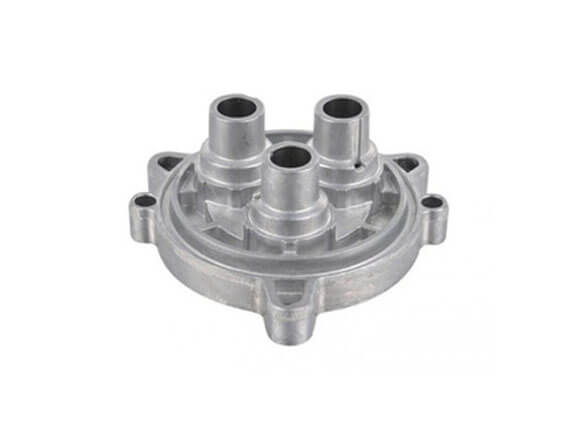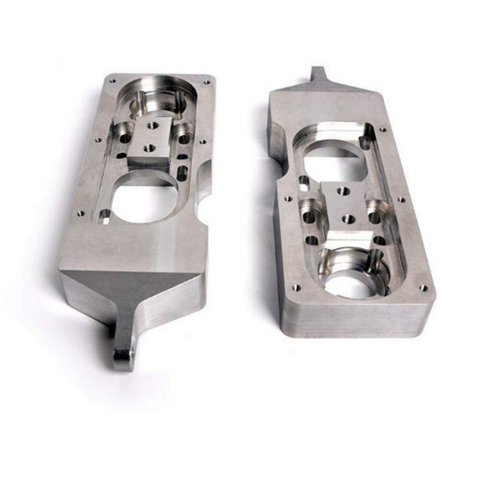Discover the Benefits of Aluminum Casting in Modern Manufacturing
Aluminum casting has emerged as a crucial procedure in contemporary production. Its lightweight yet durable nature provides considerable benefits for numerous sectors. The capacity to accomplish complex layouts and maintain limited tolerances adds to its charm. aluminum casting. In addition, the cost-effectiveness and environmental advantages make it a lasting option. As suppliers look for ingenious options, the duty of aluminum casting proceeds to progress. What certain applications and benefits await expedition in this dynamic field?
Light-weight Yet Strong: The Benefits of Aluminum
Although numerous materials are utilized in production, aluminum sticks out because of its impressive combination of lightweight properties and extraordinary stamina. This unique quality makes aluminum an ideal selection for numerous applications, especially in industries such as auto, aerospace, and building. Its low thickness enables easier handling and transport, adding to decreased energy usage throughout manufacturing and assembly processes.
Aluminum's strength-to-weight proportion is remarkable, enabling manufacturers to create sturdy elements without including unnecessary mass. This characteristic is especially valuable in markets where weight decrease can lead to enhanced fuel efficiency and overall performance. Furthermore, aluminum's resistance to deterioration enhances the longevity of products, further strengthening its allure in contemporary production.
Inevitably, the lightweight yet strong nature of aluminum settings it as a preferred product, promoting technology and effectiveness across multiple sectors. Manufacturers significantly recognize that these advantages can lead to substantial innovations in design and performance.
Precision and Complexity in Style
As producers welcome the capacities of aluminum casting, they find new avenues for precision and complexity in design. This production process permits for the development of complex shapes and in-depth attributes that standard methods commonly battle to achieve. The fluidness of molten aluminum enables it to fill up complicated molds, leading to parts with tight resistances and fine surface finishes.
This precision is particularly helpful in markets such as aerospace and automotive, where precise specs are vital for performance and safety and security. Aluminum casting also suits cutting-edge layouts that enhance performance without endangering architectural honesty.

Cost-Effectiveness and Efficiency
Cost-effectiveness and efficiency are vital factors to consider for manufacturers exploring aluminum casting as a manufacturing technique. Aluminum casting deals substantial price benefits as a result of its reduced material expenses contrasted to various other metals (aluminum casting). The lightweight nature of aluminum lowers delivery and handling expenses, and its superb thermal conductivity allows for quicker cooling times throughout the casting process, enhancing general production rate
Additionally, aluminum's versatility enables makers to develop complex shapes and designs, reducing the need for extra machining or assembly. This streamlining of production not visit this web-site just minimizes labor expenses however additionally reduces lead times, permitting companies to respond promptly to market demands.
The resilience and corrosion resistance of aluminum spreadings add to longer product life-spans, minimizing substitute prices over time. As an outcome, producers can accomplish an equilibrium of high-grade outcome and decreased operational expenses, making aluminum casting a progressively eye-catching option in modern-day production.
Environmental Sustainability of Aluminum Casting
Aluminum casting stands apart as an environmentally lasting production alternative, specifically as a result of its recyclability and minimized eco-friendly footprint. The process enables the reliable usage of aluminum, a product that can be reused indefinitely without losing its buildings. This particular considerably decreases the need for virgin aluminum, thereby conserving natural deposits and minimizing power consumption connected with removal and handling.

Applications Across Industries: From Automotive to Aerospace
While diverse sectors remain to seek cutting-edge products for manufacturing, aluminum casting has proven to be a versatile remedy throughout fields such as auto and aerospace. In the automobile market, aluminum spreadings add to try this out lightweight automobile styles, enhancing fuel effectiveness and performance. Parts like engine blocks, transmission real estates, and wheels benefit from aluminum's strength-to-weight ratio.
In aerospace, aluminum casting plays a significant role in generating intricate components that need high resilience and low weight. Airplane components such as braces, landing equipment, and architectural frames utilize aluminum for peak performance and safety and security.
The flexibility of aluminum casting enables it to provide to other industries, consisting of customer electronic devices, aquatic, and industrial equipment. This flexibility not only satisfies the certain demands of numerous applications however likewise sustains recurring advancement in manufacturing processes. Because of this, aluminum casting remains a principal in modern manufacturing throughout various sectors.
Often Asked Concerns
Exactly How Does Aluminum Casting Contrast to Various Other Steel Casting Procedures?
Aluminum casting offers superior strength-to-weight ratios, faster air conditioning rates, and exceptional deterioration resistance compared to other steel casting procedures. These advantages make it optimal for various applications, improving effectiveness and performance in manufacturing.
What Are the Normal Lead Times for Aluminum Casting Projects?
Typical lead times for aluminum casting tasks vary from two to 8 weeks, depending on elements such as complexity, order dimension, and production capability. Efficient preparation can help minimize delays and improve task timelines.
Can Aluminum Casting Be Utilized for Intricate Layouts?
Aluminum casting can indeed accommodate intricate styles. Aluminum Casting Company. Its fluidness enables in-depth patterns and forms, making it appropriate for intricate elements in different industries. This flexibility enhances design freedom while preserving architectural stability and performance
What Post-Processing Options Are Available After Aluminum Casting?
Post-processing options for aluminum casting consist of machining, brightening, surface area treatments, anodizing, and welding. These techniques boost the surface, improve dimensional accuracy, and rise rust resistance, therefore enhancing the end product's performance and aesthetic appeal.
How Do Temperature Level Modifications Affect Aluminum Casting Quality?
Temperature changes substantially effect aluminum casting high quality by impacting fluidity, solidification rates, and potential defects. Fast cooling can cause enhanced brittleness, while excessive warm might trigger warping or incomplete filling of molds during casting.
Aluminum casting has arised as a critical process in contemporary production. As producers welcome the abilities of aluminum casting, they find brand-new avenues for precision and complexity in layout. Aluminum casting processes normally create fewer greenhouse gas discharges contrasted to other steel casting approaches. While varied sectors click for more info proceed to seek cutting-edge products for production, aluminum casting has shown to be a functional remedy throughout fields such as automotive and aerospace. In the automotive industry, aluminum spreadings add to light-weight lorry styles, enhancing fuel effectiveness and performance.